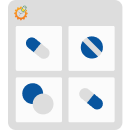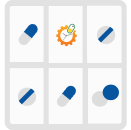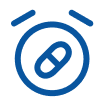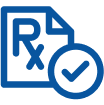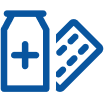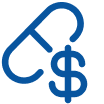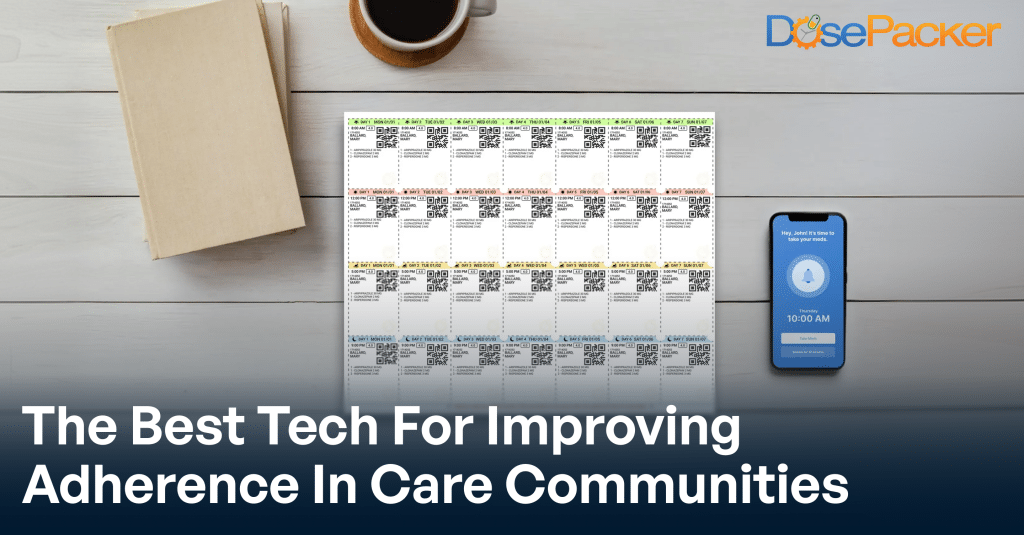Unlock the latest in medication management technology and grow your care community with us.
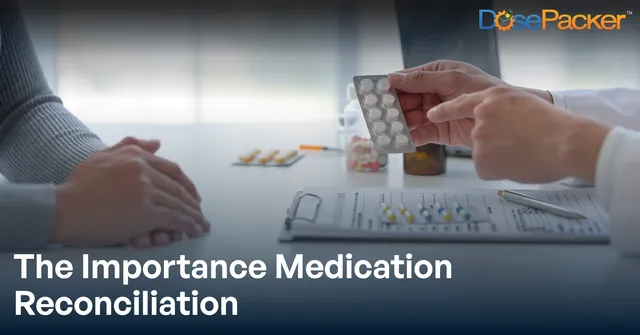
Every year, millions of patients transition between healthcare settings—from primary care to hospitals, specialty clinics, and long-term care. Unfortunately, these transitions are often the riskiest for medication management.
Research shows that about 60% of medication errors occur during these care transitions, where changes in settings and teams can lead to critical mistakes regarding what, when, and why medications are prescribed.
To mitigate these errors, medication reconciliation serves as a vital safety net. This systematic process compares a patient’s current medication orders against their actual regimen, preventing potentially dangerous mistakes that could lead to adverse drug events.
Sometimes, a little help is necessary to achieve accurate medication reconciliation, and that’s where DosePacker excels. With our innovative solutions that streamline medication management, we make it easier to get medication reconciliation right, ensuring safety and peace of mind for patients and providers alike.
Prevent Medical Errors Before They Happen
What Is Medication Reconciliation?
The World Health Organization (WHO) defines medication reconciliation as the formal process in which healthcare professionals partner with patients to ensure accurate and complete medication information transfer at care interfaces.
This would include:
- Prescription medications
- Over-the-counter drugs
- Vitamins and supplements
- Herbal remedies
- Recently discontinued medications
- Medications used on an as-needed basis
Even the Joint Commission recognizes medication reconciliation as a National Patient Safety Goal as this designation underscores its critical importance in:
- Preventing medication errors.
- Reducing adverse drug events.
- Improving communication between healthcare providers.
- Ensuring safe transitions of care.
The Goals of Medication Reconciliation
What does this process aim to achieve, and why is it a cornerstone of patient care?
At its heart, medication reconciliation is about creating a safer, smoother healthcare experience for every patient.
1. PREVENT medication errors
- Eliminate duplicate therapies
- Catch missed medications
- Identify incorrect dosages
- Flag potential drug interactions
- Detect outdated prescriptions
2. ENSURE clear communication
- Build bridges between care teams
- Create a single source of truth
- Maintain consistency across transitions
- Enable informed decision-making
- Support care coordination
3. OPTIMIZE treatment outcomes
- Tailor medications to patient needs
- Enhance therapeutic effectiveness
- Reduce adverse drug events
- Support medication adherence
- Improve patient satisfaction
Each goal supports and reinforces the others:

Why Is Medication Reconciliation Important?
This isn’t just a procedural step in healthcare—it’s a lifeline for patient safety, trust, and improved outcomes. Here’s why medical reconciliation is indispensable.
Addresses the Risks of Medication Discrepancies
Medication discrepancies can happen in many ways:
- A prescription gets left out during a transition.
- A patient misinterprets their instructions.
- Interactions between medications are overlooked.
The Impact: These errors can lead to severe complications, from mild side effects to life-threatening adverse drug events (ADEs).
Enhances Outcomes While Reducing Costs
The benefits of medication reconciliation extend beyond patient health – it’s a cost-saving powerhouse for healthcare systems:
- Proper reconciliation can reduce adverse drug events (ADEs) by up to 15%.
- Patients who received medication reconciliation had lower readmission rates, saving health organizations about $1,500,000 a year.
- Medication reconciliation can significantly reduce unforeseen medication discrepancies by 45%.
Builds Trust and Promotes Compliance
For patients, understanding their medication plan builds confidence in their care. It also:
- Provides them with opportunities to ask questions and participate in their health journey.
- Reduces anxiety about taking the wrong medication or missing doses.
- Improves compliance, as they feel supported and informed.
For providers, medication reconciliation demonstrates a commitment to accuracy and patient well-being, fostering stronger relationships and trust.
Medication Reconciliation Process
Here’s how the World Health Organization (WHO) outlines the steps to effective medication reconciliation:
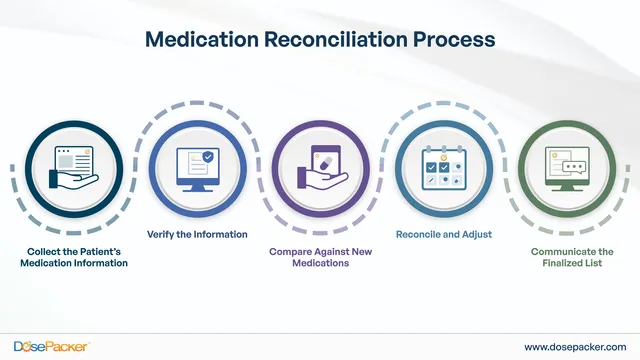
1. Collect the Patient’s Medication Information
Gather a complete and accurate list of all medications the patient is currently taking, including:
- Prescription medications (both active and recently discontinued)
- Over-the-counter medications and supplements
- Herbal remedies and vitamins
- Alternative medicines or treatments

2. Verify the Information
Cross-reference the collected medication list through multiple sources:
- Patient interviews and family members
- Primary care physician records
- Pharmacy dispensing records
- Previous hospital discharge summaries
- Electronic health records

3. Compare Against New Medications
Review the verified medication list against any new prescriptions. This review will help identify potential issues such as:
- Therapeutic duplications
- Drug-drug interactions
- Contraindications
- Dosing inconsistencies
- Missing medications

4. Reconcile and Adjust
Make clinical decisions about continuing, discontinuing, or modifying medications. Create an updated, accurate medication list that reflects the following:
- Current patient needs
- Treatment goals
- Best practice guidelines
- Patient preferences and capabilities

5. Communicate the Finalized List
Share the reconciled medication list with all stakeholders:
- Patient and family caregivers
- All treating healthcare providers
- Pharmacy services
- Next care setting (if transferring)

Better, Error-Free Care with DosePacker
Even with all the key steps and best practices, sometimes we need some help to turn this challenging task into a streamlined, efficient operation.
Let DosePacker be your game-changer in achieving error-free medication management. We take the complexity out of medication reconciliation and replace it with confidence and precision with our innovative solutions:
- Multi-Dose Packaging Made Easy: Medications are pre-organized into multi-dose compliance packs with clear labels and color-coded hours of administration information for streamlined medication intake.
- Leveraging Technology: Our solutions, like the DoseMinder medication reminder device and MyDoses App, seamlessly connect with pharmacy databases, enabling real-time updates during reconciliation.
Whether you’re a healthcare provider, administrator, or technology partner, you play a vital role in this important mission. Take the first step and join us in our mission to a safer and healthier tomorrow.
Start Your Journey Towards Safer Care
Every step in medication reconciliation holds the power to save lives and build trust. With DosePacker by your side, healthcare providers can face this challenge head-on, delivering care that’s not just safe but exceptional.
Because at the end of the day, it isn’t just about managing medications – it’s about protecting lives and ensuring better health outcomes for all.
